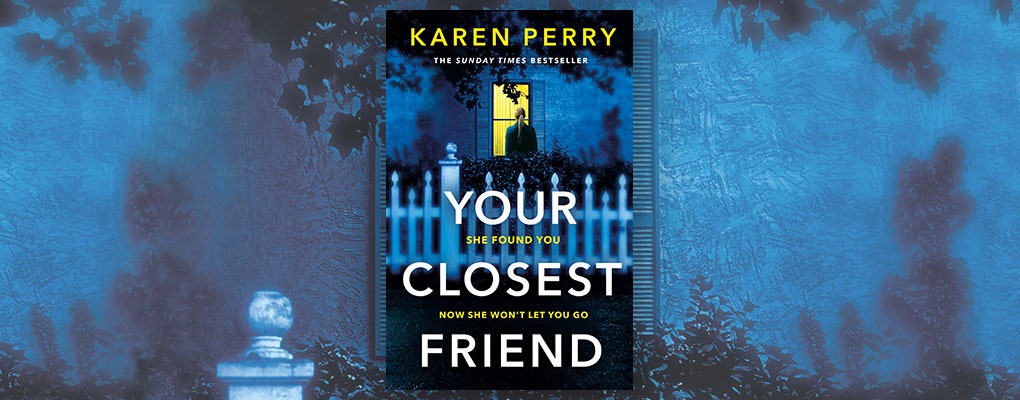Books
Karen Perry: when friendships turn toxic
We all need friends. For many of us, friends fulfil the roles traditionally associated with family, providing support and encouragement, being there for you no matter what. Studies show that friendships are vital to our health and well-being. Female friendships, in particular, can be close, nurturing and enduring.
From Lena Dunham’s Girls to Elena Ferrante’s Neapolitan novels, female friendships have proved to be fertile creative ground. Think back to Sex And The City – the show’s success owed more to the bonds between the four women than it did to the various romantic interests pursued by the protagonists. At their best, female friendships raise our self-esteem and act as a buffer to life’s problems and stresses. These relationships are as precious and irreplaceable as any true love.
But what happens when the friendship sours? What happens when the relationship becomes toxic?
When I was working on my novel Your Closest Friend I found myself re-watching a lot of films from the early 90s. One of the films I revisited was Peter Jackson’s Heavenly Creatures, a film that explores the real-life friendship between teenagers Pauline Parker and Juliet Hulme in 1950s New Zealand, a friendship so deeply obsessive, so toxic, that it led the girls to commit murder. There is a particularly chilling point in the film’s final moments, when the text on the screen informs the viewer that the girls’ release from prison, after serving five years for the brutal murder of Pauline’s mother, was on the nonnegotiable condition that they never reunite. Such was the level of lethal risk associated with their friendship that the judiciary thought it imperative that these two friends never see each other again. I was fascinated by how the strength of their relationship could lead to such terror.
The Irish word for friend is cara, and Cara is the name I chose for one of my two female protagonists in Your Closest Friend. Cara’s friendship with Amy is forged in a moment of profound stress. A terror attack in London leads these two women to take refuge together in a room above a shop, while terrorists rampage through the streets below. A bond is formed between them based on their shared experience that night, but also fed by their own different needs. Amy is rootless and lonely. Her interest in Cara, while innocent on the surface, is anchored by a darkly obsessive need. The closeness she desires is far deeper and more demanding than Cara has ever imagined. For beneath the surface, Amy is a damaged person. There is an emptiness inside her, and a longing, that renders within her a capacity for violence. Cara, distracted by her own messy personal life, doesn’t see that their friendship is something dangerous and that Amy, far from being the good Samaritan, is someone who will stop at nothing to get what she wants.
Some friendships peter out. Some naturally wither and fade having outgrown their purpose. But for some people – like Amy – friendships are not allowed to end. For Amy, a friend is for life, even if it drives you to murder.
Have you read Your Closest Friend by Karen Perry yet? Let us know in the comments below…



Please note: Moderation is enabled and may delay your comment being posted. There is no need to resubmit your comment. By posting a comment you are agreeing to the website Terms of Use.